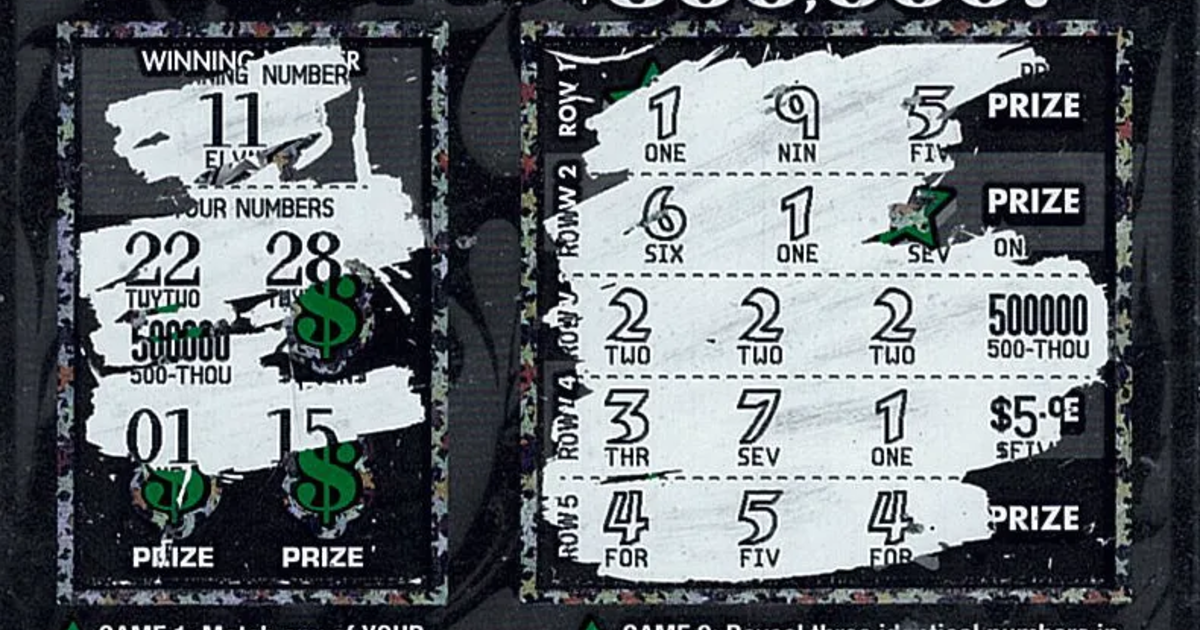Man Who Lost Home Over $8.41 In Back-Taxes Wins Michigan Supreme Court Case
CBS Detroit - Uri Rafaeli is a retired engineer who lost his Oakland County rental home back in November for not paying his property taxes in full. He owed $8.41, and yes that is correct, he lost his home for about the price of a movie ticket. What's worse is Oakland County foreclosed and seized his home, auctioning his property off, and kept the $24,500 in excess from the sales.
From an article in Reason.com, Rafaeli's home which was in Southfield was purchased in August of 2011 for $60,000. A three-bed, 1500 square-foot home that was at the time a investment rental property, and a way for him to control rent in increases, important for someone who is retired with a fixed income. Later in June of 2012, he was told by the Oakland County Register of Deeds he was behind in property taxes by $496. He made payments and paid his debt on time and in full. According to court records he attempted to settle his unpaid tax debt but made an error with interest, resulting in owing $8.41. A year later Rafaeli's home along with 11,000 other properties in Oakland County was put up for sale in Oakland County.
Uri Rafaeli and other property owners filed a case in Rafaeli, LLC v. Oakland County, which was represented by The Pacific Legal Foundation (PLF). That case went to the Michigan Supreme Court and won.
Not only did he lose his property over a pittance in tax money owed, but the county also sold it for far less than the $82,000 the property was valued at. Over $20,000 in equity lost from the $60,000 original purchase price.
In a majority opinion by the Michigan Supreme Court, six out of seven justices agreed that the seizure was a taking of private property that required just compensation.
The reasons the Court noted was early in Michigan's statehood it was commonly understood that the government could not take more taxes than what was owed, nor could it sell more land than what's necessary for unpaid taxes. They also noted it was axiomatic (unquestionable) that in terms of eminent domain, the government shall take no more property that is necessary for the particular public use in which the taking was done. They concluded that these fundamental principles protect taxpayers and property owners from governmental overreach.
The opinion of the justices goes back to limitations on the government's power to take property from delinquent taxes from the Magna Carta and English Common Law. The court's opinion found a property owner's right to the residual value of a property is protected by the takings clause of the Michigan State Constitution and the Fifth Amendment of the U.S. Constitution. Further concluding, "We must keep in mind that Michigan's Takings Clause has been interpreted to afford property owners greater protection than its federal counterpart when it comes to the state's ability to take private property for a public use under the power of eminent domain."
In the 1996 the U.S. Supreme Court case Bennis v. Michigan, it was ruled civil asset forfeitures do not qualify as takings and do not require governments to compensate people under the Takings Clause of the 5th Amendment.
In this case, however, the Michigan Supreme Court said the Bennis case doesn't necessarily apply. Under the state General Property Tax Act, forfeiture allows for a judgment of foreclosure. Forfeiture does not affect title, the county treasurer cannot take any titles, rights, or interest on forfeited property. "Therefore, we reject the premise that plaintiffs "forfeited" all rights, titles, and interests they had in their properties by failing to pay their real property taxes."
In civil asset forfeiture, part of what it is meant to do is punish the owner of the property the court said. Such as if someone is convicted of a crime, and the property from that criminal operation is seized. However, the state General Property Tax Act is not "punitive" in nature. The act they said was to have people pay their taxes in a timely manner and to return those delinquent properties back to where they can further generate taxes.
The Michigan Supreme Court found the "plaintiffs did not use their properties for illicit purposes. They simply failed to pay their property taxes, which is not a criminal offense."
The Reason.com article does note in other states, civil asset forfeiture does allow governments to seize assets without ever proving a crime was committed or even charging someone with one. While it was initially enacted to take from large scale crime organizations their assets. According to the Pulitzer Center, the property seized is deemed "criminal", not the person.
Justice David Viviano wrote in his opinion, (Because) "a property owner has a claim for a violation of the Takings Clause as soon as a government takes his property for public use without paying for it",… under the majority's theory, no constitutional issues occur until the surplus proceeds are retained. It does not matter that once title has vested in the government without chance of redemption, the taxpayer's property—his or her equity—has been taken. Consequently, the majority's view of the case would seemingly be that if the property does not sell at auction and is simply transferred to a governmental unit, the taxpayer is out of luck: no proceeds, let alone a surplus, have been produced or retained by the government…. Perhaps worse still, governmental units have numerous opportunities to purchase the property for the minimum bid, i.e., for the debt (and costs), and thus obtain it for an amount that will usually be much less than fair market value."
According to Viviano, the property owner is not just entitled to the proceeds from the sale, minus fees and what he owed in back taxes, but also the "equity" he holds in the property as a whole. Meaning the owner is owed fair market value compensation. The concern is that when the county sells a property, they usually only care about getting only what they're due, and not the full value a property owner would seek when selling property or land.
In a previous article by Reason, this practice is not unique to Oakland County and is derived from Public Act 123 of 1999. Which was meant to give County Treasurers authority to foreclose on blighted properties to get those properties into future development. Instead, they say it had the opposite effect. It forced out people who were poor and/or in hard times out of their homes. Many times the properties would remain unsold or bought up for just a fraction by individuals who would let them deteriorate. In the case of Detroit, this practice aided the blight epidemic that still plagues the city. The argument is that if the government worked with these individuals through hard times, the homes and neighborhoods could have possibly been maintained. That those families would eventually get back on their feet, and back to paying their taxes and improving their neighborhoods.
In Detroit, Reason.com reports 150,000 properties in Detroit have gone through the foreclosure, in many cases what were once grand old homes being sold for less than $1,000. This is according to data collected by Jerry Paffendorf of Loveland Technologies. Finding that in many cases the homes auctioned off were not even vacant.
In Wayne County, delinquent tax surpluses have given an extra $382 million into the general fund since 2012 according to Bridge Michigan. In Oakland County, $196.8 million has come from net assets. The problem is also in other Michigan Counties as well.
In Detroit, from 2017 to 2018 volunteers for the non-profit Quicken Loan Community Fund polled 60,000 property owners who owed taxes in Detroit. Many said they were aware that they owed, they just didn't know about the process or the consequences. They found aggressive use of P.A .123 was contributing to more vacant properties.
Reason.com even noted that Wayne County Treasurer Eric Sabree said on the program Detroit Want 2 Know from October of 2015, that Wayne County the City of Detroit will bundle properties to make them easier to sell. Putting parcels together strategically to benefit buyers, and perhaps (according to Reason.com) less attractive parcels so that the city can keep land for itself.
"It's a group of properties we put together because we cooperated with the city of Detroit…Nobody will buy this bundle, and then we can just give it to the city, and then the city will use the demolition funds to tear them down," he said. "And in the bundle, we also had some good properties, which the city then sold to fund the demolition and the management of the properties they took." said Sabree.
The Fall Out
What makes this case noteworthy is that Rafaeli and others are now due money for they are owed, and others who have been foreclosed on could seek compensation. Forcing counties all over the state to refund people, when many counties are struggling already. This case they say doesn't end future tax abuses in Michigan.
In the end, if residents are behind on their taxes, it is important they remain on top of things and know full well what their rights are and what the process, is.
© 2020 CBS Broadcasting Inc. All Rights Reserved. This material may not be published, broadcast, rewritten, or redistributed. Information from Reason.com contributed to this report.



